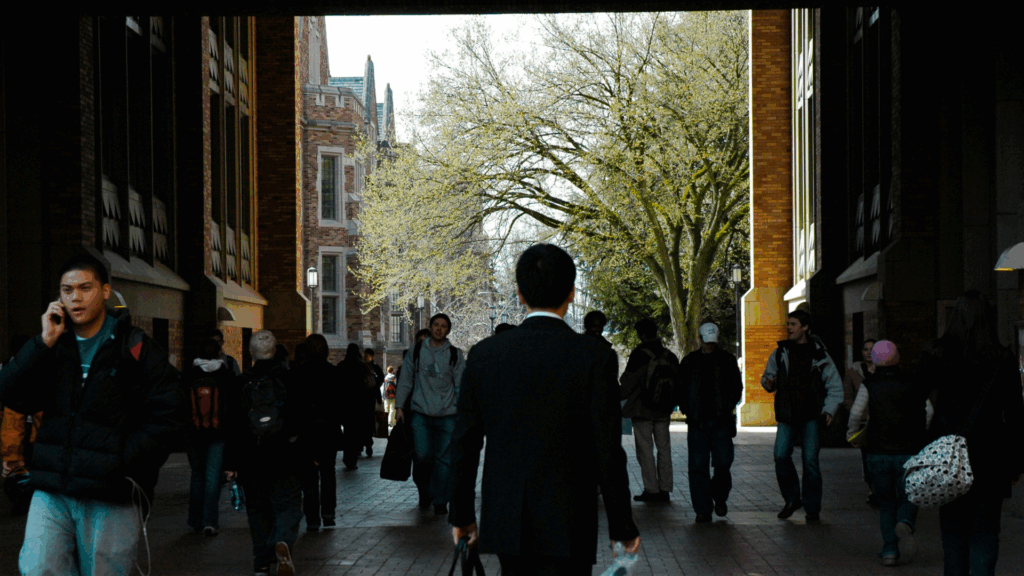Jesus sends the Twelve out all over Israel to announce that the Kingdom of God is at hand, that it is now very close. And the Master gives them some very precise instructions about what they have to do and to say, making no secret about the difficulties they will encounter. We read then in the Gospel of today’s Mass: Behold, I send you out as sheep in the midst of wolves; so be wise as serpents and innocent as doves (Matt 10:16). They must be vigilant so as not to be taken unawares by evil, so that they will recognise the wolves disguised as lambs and be able to distinguish the false from the true prophets (Matt 7:15). in this way they will not miss a single opportunity of proclaiming the Gospel and of doing good. They have to be at the same time simple, for it is only in this way that they can win over the hearts of all. Without simplicity, prudence would easily become cunning.
As Christians we have to both live and propagate these two virtues, which strengthen and complement each other. Simplicity means having rectitude of intention and behaving with firmness and consistency. Prudence always points out to us the most appropriate means of achieving our end. Saint Augustine teaches that prudence is the love that distinguishes what helps us to go towards God from what hinders us (St Augustine, On the Customs of the Catholic Church, 25, 4-6). This virtue enables us to know objectively the reality of things, according to their ultimate end; to judge with certainty concerning the right way to follow, and to act in consequence. The prudent person is not, as is so often believed, the man who shrewdly knows how to make his way in the world and make the most of it for himself He is, rather, the one who manages to construct the whale of his life in accordance with the voice of a right conscience and the demands of sound morals.
We can then see that prudence is the keystone by which we each accomplish the fundamental task we have been given by God. This task is the perfection of man himself (John Paul II, Address, 25 October 1978), – holiness.
Our Lord taught us by his words and by his example to be prudent. The first time He spoke, at twelve years of age, in the portico of the Temple all were
amazed at his understanding (Luke 2:47). Later on, during his public life, his words and his conduct were as clear as they were prudent, being such that his enemies could not find fault with him. Our Lord does not seek subterfuges, but keeps in mind who it is He is talking to. It is for this reason that He makes it known only gradually that He is the Messiah. He announces his death on the Cross in accordance with the degree of preparation and knowledge of those to whom he is speaking. We too must learn from Christ.
In order to be prudent we have to have light in our understanding; then we will be able to judge events and circumstances correctly (cf R. Garrigou-Lagrange, The Three Ages of the Interior Life, vol.II). it is only with good doctrinal, religious and ascetical formation, and with the help of grace, that we will discover the ways that truly lead to God and know what decisions to make … Nevertheless there are many occasions when we need to ask for advice. To be prudent the first step is to acknowledge our own limitations. This is the virtue of humility. Through it, we admit that in certain matters we cannot cover everything, that in many cases we cannot take in all the circumstances that have to be borne in mind in order to make a fair judgement So we look for advice – but not advice from just anyone. We go to someone who has the right qualities, to someone who wants to love God as sincerely as we do and who tries to follow him faithfully. it is not enough to ask just anyone for his opinion We must go to somebody who can give us sound and disinterested advice (St. Josemaria, Friends of God, 86).
Saint Thomas points out that, generally, before making any decision that may have serious consequences for oneself or for others, we must seek advice (St Thomas, Summa Theologiae, 2-2, q.49, a.3). But it is not only in these extreme cases that we must look for it. Sometimes people, both young and old, are in urgent need of guidance as to their reading – books, magazines and newspapers. They need to know whether to go to performances that, sometimes quite blatantly and sometimes in a less obvious but subtle way, may undermine our faith or create an evil compost in our hearts in which afterwards all sorts of doubts or temptations may take root. Such doubts and temptations could have been avoided with just a little more humility and prudence. There is no justification for not giving a wide berth to a situation which could be the beginning of our straying from the right path.
Simplicity moves us to put things right when we have made a mistake, or when new facts come to light that put an entirely different complexion on a problem. In the supernatural life, simplicity, so close to humility, leads us to ask for forgiveness many times in our lives, for we succumb to so many weaknesses and errors.
Pope John Paul II, speaking about prudence, invited his listeners to make an examination of conscience as to their own behaviour. We can too can examine ourselves today. Am I really prudent? Do I live in a consistent and responsible fashion? Does the programme I am following help me towards the true good? Does it help to bring about the salvation that Christ and the Church want for me? (John Paul II, loc cit). Am I going straight towards achieving my supernatural end – sanctity – to which Our Lord has called me? Do I put aside anything that might hamper my progress? Do I seek advice in matters relating to my soul? Do I put things right when I make a mistake?
Prudence would not be true prudence if, having given due consideration to the facts, it chose the cowardly way of not making a decision that involved risk, or caused us to avoid facing up squarely to a problem. The attitude of the person who allows himself to be led by human respect in the apostolate and lets opportunities slip, while he waits for other opportunities that may never arise, is not a prudent attitude. Saint Paul calls this false virtue prudence of the flesh (cf Rom 8:6). It is a false virtue that asks for more reasons and considerations before giving God what He asks of us personally. it is what causes us to worry excessively about the future, and gives us a reason for not being generous here and now. It is what always makes us find some excuse for not deciding to commit ourselves fully.
Prudence means not shunning the boldness of giving oneself and daring to become involved in God’s work. It is not the ability to find lukewarm compromises or to justify a remiss and negligent attitude by giving it the name of some acceptable theory. That is not how the Apostles went about things. Despite their weaknesses and at times their fear, they constantly sought the quickest way of spreading the Master’s teaching, even though those ways sometimes led them into a plenty of trouble and caused them countless tribulations – and even martyrdom.
Following Our Lord means living a life of small and great acts of madness, as is always the case where true love is concerned. When Our Lord asks more of us – and He always asks for more – we cannot draw back with a false prudence, the prudence of the world. We must not be swayed by the judgement of those who do not feel themselves called, and who see everything through merely human eyes, and sometimes with eyes that are not even human, because they have what is no more than an earthly outlook, an outlook that prevents them ever getting off the ground. No man and no woman would ever have given themselves to God or ever have initiated any supernatural undertaking if they had followed that ‘prudence of the flesh’. They would always have found more or less convincing reasons for refusing to proceed – or for deferring their response till a more convenient time, which often boils down to the same thing.
It was said of Jesus, He is beside himself(Matt 3:21). It seems that the most elementary precautions would have enabled him to escape death. Just a few formulae would have been sufficient to mitigate the rigour of his teaching and for him to arrive at a compromise with the Pharisees. He could have presented in some other way his teaching on the Eucharist in the synagogue at Capharnaum (cfr. John 6:1 et seq.), where many left him. Just a few words would have been sufficient for him, who was eternal Wisdom, to obtain his freedom at Pilate’s hands. Jesus was not ‘prudent’ according to the world, but he was more prudent than serpents, than men, or than his enemies. His was a different type of prudence. This has to be our type of prudence even if, because we imitate him, men may sometimes call us mad and ‘imprudent.’ Supernatural prudence shows us at each moment the quickest and most direct way to reach Christ… bringing with us many friends, relatives and colleagues.
Do you want to be daring in a holy way, so that God may act through you? Have recourse to Mary, and she will accompany you along the path of humility so that, when faced by what to the human mind is impossible, you may be able to answer with a resounding fiat’ – be it done!, which unites the earth to Heaven (St. Josemaria, Furrow, 124).
By Francisco Fernandez, In Conversation with God, New York, Scepter, 1990, Volume 4, pp. 105-110
Photo by Michał Parzuchowski on Unsplash



